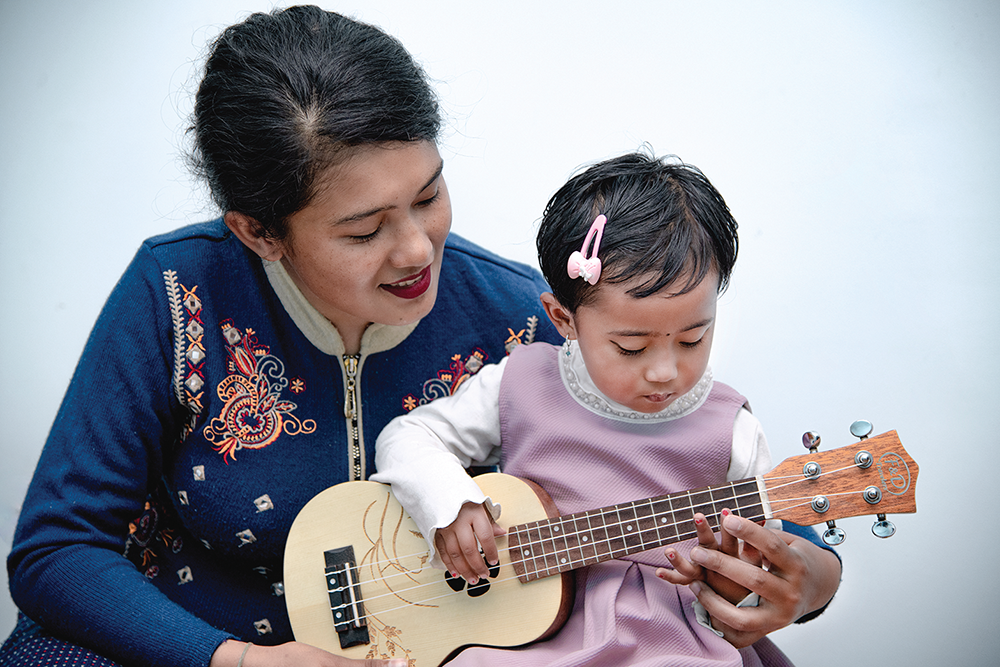Shifting Dimensions in Music Education
“When the first Indian musical reality TV series aired, we received a significant number of enquiries and new students were brought for enrolment by parents; it gave them that needed spark. ”

In Conversation with Bijay Khadka
One of the growing sights these days is that of people most youngsters, travelling with musical instruments. Chances are high that they are going for a show or for their music lessons. This was something not so common back in the old days, when being a musician wasn’t considered a proper job and parents weren’t supportive of the profession. A mere decade and half earlier, only the lucky few could get to learn music; for the rest, turning to FM radios or television was the only way to enjoy on a daily basis. Yes, we’ve had really good musicians historically. But they were the people driven by sheer passion because learning music or being involved in the same wasn’t as reachable as now. Parental pressure or expensive fees deprived many potential musicians from attending lessons at a few music institutes that were around back then.
But then a shift in dimensions took place. People from that generation are now parents with kids. They want their children to receive what they themselves couldn’t. We’ve got internet and YouTube, and are listening to music and watching performances online like never before. And the live music scene here too is at its prime, creating jobs for countless artists and musicians. Music as career is now a reality. Many schools have put music as their compulsory subject, and various dedicated music schools and institutes have helped produce fine musicians today. Nepal Music Center, Kathmandu Jazz Conservatory, Music Circle, Sangeet Pathshala, and Kaleidoscope Music Academy, to name a few are well reputed music schools in Kathmandu. As we sit down with Bijay Khadka, the Managing Director of Sangeet Pathshala, he talks about key points about this dimensional shift.
How do you see the changes in the music education at present?
The best part, to be honest, is the fact that we receive numerous parents who want to enroll their children to music classes these days. We get many phone and text enquiries. Usually they share with us how they want to see their kids to be able to sing or play music. Perhaps they want their children to have the opportunity they themselves never had, but it’s a good start. In the past, that was a rare sight. Almost all students we have came by themselves with their own pocket money. But in the present, if children desire, musical education and instruments are easily available. These shifts signify the positive changes in the perception of music in general, which I believe is wonderful.
How do you think was it made possible?
Well, a significant parameter is the change in generation itself. Like I noted earlier, the new parents at present are the children from the era when getting involved in music sector was far from the realm of possibility. They want their children now get all the things they couldn’t ask their parents back then, music definitely being one. While they received good education and careers accordingly with or without pressure from their parents, these new parents of today believe motivating their children to go after things they love.
The rise of internet and musical reality television series as well has had a big impact in growth of music education today. When the first Indian musical reality TV series aired, we received a significant number of enquiries and new students were brought in for enrollment by parents; it gave them that needed spark. The fact that we are watching videos from all over on YouTube has awakened in us the feeling of wanting to see kids do something out of the box as well. Thanks to the online platforms we now see a lot of kids, even of really young age, perform beautiful music.
What are the things that parents need to look at before enrolling their children for music education?
Foremost thing is to overcome the insecurities we discussed earlier, and enrolling the children right away, wherever is convenient. I believe we have best music schools and institutes around, and we teach the same thing -- music. The difference might be in the way we do so. Hence, parents need to look out for change and growth in their children. If they are learning right, they are sure to give signs of changes to indicate they are going through. Age is never an issue. In fact, we have students learning from the age of six to as old as thirty two. And check out for other services they provide. For example, Sangeet Pathshala records and produces videos of the students once they reach a certain stage in order to boost the student’s visibility, which would help them in the long run. Also we bring together students from various departments and set up a group and motivate them to practice as a unit which helps them learn in different ways. For serious and growing students we provide properly equipped dedicated practice space which is much needed for after class growth. Performance platforms and live shows are always possible with us since we organize numerous musical events as well. But coming down to the core, parents should motivate their children everyday to get better in what they are learning.



